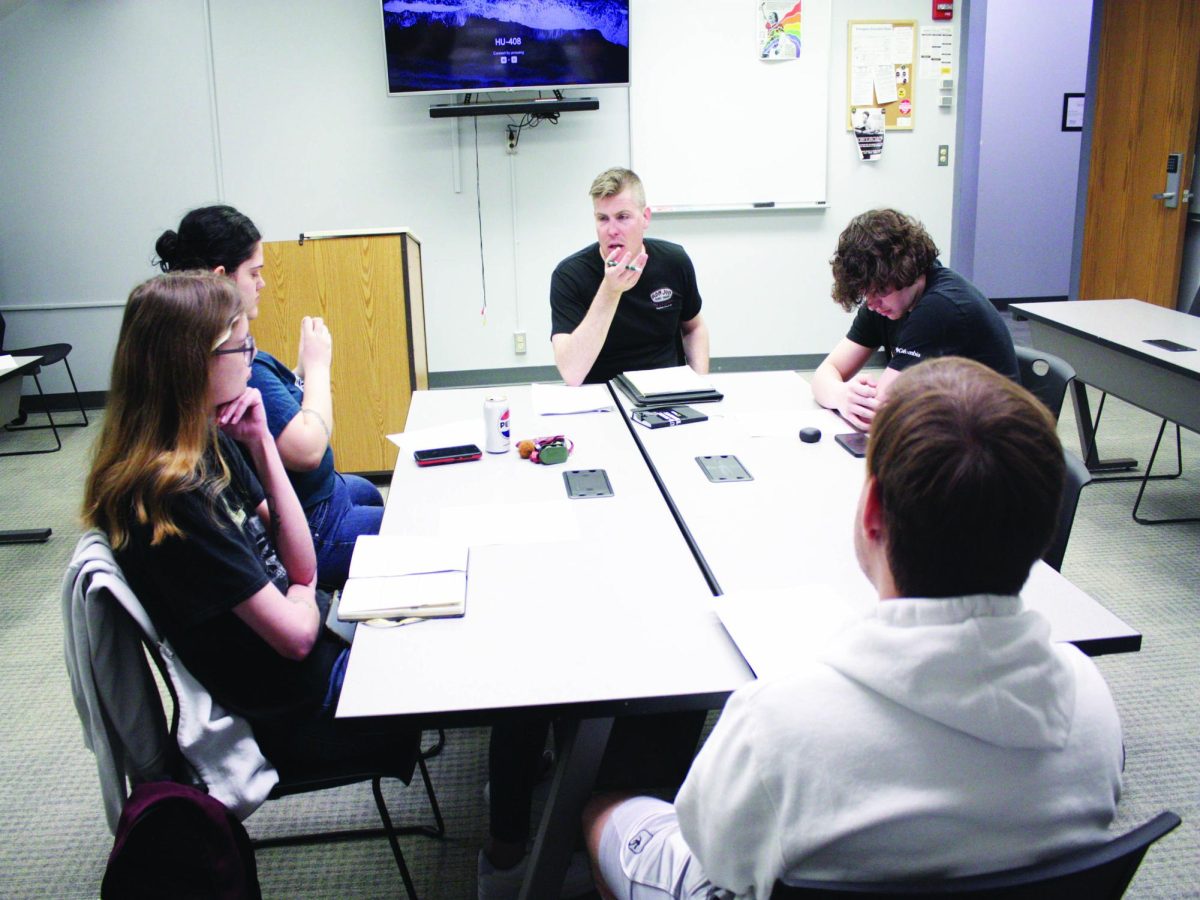In 1980, the first installment of the “Friday the 13th” film series was released, and in its wild success, introduced much of America to what horror would look like in the Reagan era.
Graphically violent and overtly sexually charged, the slasher subgenre was a direct response to the moral puritanism and “family values” that became the primary talking points for Americans at the time. The now cliche horror tropes of “if you have sex, you die” and “if you do drugs, you die” were born of the sexual and social repression that Reagan reinforced. The ‘80s slasher is deeply gendered in its presentation, and the “Nosferatu” remake carries on that tradition by ushering in a new era for horror movies in the wake of the overturning of Roe V. Wade.
“Nosferatu” (2024) is an incredibly sexually charged movie. It directly tackles the themes of sexual repression that haven’t been prevalent in the horror genre since the ‘80s. In the opening scene of the film, Ellen Hunter, Lilly Rose Depp’s character, calls out to Count Oarlock and begins moaning directly into the camera in a close-up shot of her face, implying that there was a sexual encounter between the two.
The sexual themes of “Nosferatu” are different to the horror of the late 2010s and early ‘20s. I can’t help but compare the conservative regimes of both Reagan and Trump when it comes to the “horror” that they inspire. This is especially true because they both appealed to a warped sense of nostalgia to rally their voters.
Over the last few years, there has been a significant increase in the amount of content online that has been incredibly regressive in the ways that it frames gender, dating and relationships. The most notable example of this was the rise of Andrew Tate as an online personality.
Tate is just another installment in a long line of grifters who appealed to insecure young men and boys by “giving them the answers to / secrets of relationships.” However, he is unique in the fact that, through the help of the TikTok algorithm, he was able to break into the mainstream, generously speaking, and bring with him talking points that had previously been relegated to the worst parts of Reddit and YouTube.
For the longest time, the “manosphere” (the catch-all term for the series of online communities with regressive views of gender, such as incels, pickup artists and podcast bros) was something an individual would have to seek out or be chronically online enough to stumble across. As of late, however, there has been a mass influx in content that reinforces purity culture and hegemonic ideas of masculinity being pushed by TikTok’s algorithm.
Although I have never engaged with this genre of content, TikTok will randomly show me a video of some man on the street asking a woman her body count, or a podcast where several men have on Only Fans models on for the sole purpose of berating them. One of the most striking lines from the film “Nosferatu” is when Lilly Rose Depp’s character says, “he is my shame,” when speaking about Count Oarlock, an incredibly sad way to view herself, especially when she had already suffered so much throughout the movie.
In the last few years, gender politics have become a cesspool of hatred that begets hatred. Political opinions are arrived at through spite, and legislation is pushed through that yanks us back into the structures of patriarchy that benefit no one. “Nosferatu”(2024) is a reflection of how dangerously regressive the larger cultural views of women and sexuality have become and will be the first of many in the next leg of the Trump era.






